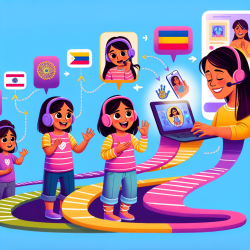As a Special Education Director, one of my key responsibilities is ensuring that our school district remains compliant with all legal requirements. A critical aspect of this compliance involves the provision of progress reports for children with disabilities as mandated by the Virginia Regulations. Understanding these requirements can be a bit daunting, so let's break it down into simple terms.
According to the Virginia Regulations, specifically 8 VAC 20-81-110 G. 8., each child's Individualized Education Program (IEP) must include a statement of when periodic reports on the child's progress towards meeting their annual goals will be provided. This is crucial because it ensures that parents of children with disabilities are kept informed about their child's progress at least as often as parents of children without disabilities.
So, when must these progress reports be provided? The regulation specifies that these reports should be given to parents whenever the school provides progress reports for its general education students. Typically, this means that progress reports will be issued quarterly or at interim periods. However, it could also mean six-week reports in some cases. Importantly, the IEP must clearly state when these reports will be provided.
Some school divisions prefer to state the frequency of progress reports in general terms, while others indicate specific reporting dates. Both practices are acceptable. However, it's essential to avoid undated "blocks†on the IEP for providing progress reports unless there is a clear statement indicating the reporting time frames. For example, a statement that reports will be provided at the same time as interim and quarterly report cards for all parents is sufficient.
Here's a practice tip: IEP team members, including parents, might find it helpful to review the Virginia Department of Education's (VDOE) model IEP forms for recommended language that documents the frequency of progress reports. The forms include the "Transition Individualized Education Program†and the "Elementary Individualized Education Program,†which can be found on the VDOE's website under "Instructional Services and IEPs.â€
In conclusion, ensuring that IEP progress reports are provided as required is not just about compliance; it's about keeping parents informed and involved in their child's education. Clear communication and timely updates can make a significant difference in the educational outcomes for children with disabilities.
For more information, please follow this link.










